Google Ads is the undisputed king of digital advertising. It offers instantaneous visibility, putting your business in front of customers exactly when they are searching for what you offer.1 For a small business in the UK, this power is transformative. However, the price of admission can feel like a mystery. You’ve heard the horror stories of budgets disappearing overnight, leaving you wondering: How much does Google Ads cost small business UK? And, more importantly, how can you ensure every pound delivers a measurable return?
The authoritative answer is: it depends, but it’s far more manageable than you might think, provided you approach it with precision and a focused strategy. This comprehensive guide will demystify the Google Ads pricing model, offering a transparent breakdown of the two main costs. We will provide realistic budget ranges, examine the crucial factors that drive up or down your Cost-Per-Click (CPC), and give you the essential metrics needed to run a profitable campaign without wasting a penny.
The Two Core Costs of Google Ads
To truly understand how much Google Ads cost small business UK, you must separate the expense into two distinct categories. Small businesses often make the mistake of only accounting for the first one.
1. The Ad Spend (The Platform Cost)
This is the money that goes directly to Google. It’s the auction-driven cost you pay every time someone clicks on your ad (Cost-Per-Click, or CPC). This is a variable cost determined by competition, keyword popularity, and your Quality Score.
2. The Management Fee (The Agency/Freelancer Cost)
This is the fee you pay a professional (an agency, consultant, or freelancer) to set up, monitor, optimize, and report on your campaigns. This cost ensures your ad spend is used wisely. Without proper management, you risk wasting a significant portion of your ad budget.
Authoritative Insight: For a small business, the management fee is not an extra expense; it’s a necessary investment to protect your ad spend. A bad manager can make a $\textsterling 500$ budget perform worse than a good manager makes a $\textsterling 300$ budget perform.
Google Ads Cost Small Business UK: Realistic Budget Ranges
What you should budget largely depends on your industry and how aggressive you need to be in your local market. Here are three realistic scenarios for UK small businesses.
Scenario A: Micro-Business (Local Service Only)
This applies to sole traders, local tradesmen, and neighbourhood shops (e.g., plumbers, florists, hair salons).
| Cost Factor | Monthly Range | Notes |
| Ad Spend | $\textsterling 200$ to $\textsterling 500$ | Focused on very specific, hyper-local keywords (e.g., “emergency electrician Leeds”). |
| Management Fee | $\textsterling 300$ to $\textsterling 600$ | Flat monthly retainer is common here. Avoid percentage-based fees that are too low. |
| Total Monthly Investment | $\textsterling 500$ to $\textsterling 1,100$ | This budget is enough to generate targeted leads but requires surgical precision in keyword selection. |
Scenario B: Small Business (Regional/Niche E-commerce)
This applies to online shops selling niche products, regional consultants, or specialized B2B services.
| Cost Factor | Monthly Range | Notes |
| Ad Spend | $\textsterling 750$ to $\textsterling 2,000$ | Budget covers a broader range of keywords and possibly shopping ads. |
| Management Fee | $\textsterling 600$ to $\textsterling 1,200$ | Often a blend of a small retainer plus a small percentage of ad spend (e.g., 10%–15%). |
| Total Monthly Investment | $\textsterling 1,350$ to $\textsterling 3,200$ | This allows for A/B testing, remarketing, and greater scale. |
Scenario C: Growth-Focused SME (Highly Competitive)
This applies to financial services, legal firms, or highly competitive national e-commerce sectors.2
| Cost Factor | Monthly Range | Notes |
| Ad Spend | $\textsterling 2,000$ and above | Necessary to compete in high CPC markets. |
| Management Fee | $\textsterling 1,200$ and up | Fees are usually a percentage of spend (10% minimum), reflecting the complexity of the campaigns. |
| Total Monthly Investment | $\textsterling 3,200$+ | This is typically required for national competition and high-value keywords. |
The Key Driver of Ad Spend: Cost-Per-Click (CPC)
Your actual Google Ads cost small business UK is fundamentally determined by the Cost-Per-Click. This is not a fixed price; it’s a dynamic price set by an auction. Two primary factors determine what you pay.
Factor 1: Competition and Keyword Intent
The more valuable a keyword is, the more businesses will bid on it, driving the CPC up.
- High-Cost Keywords ($\textsterling 5$+ CPC): These are keywords with very high commercial intent, meaning someone clicking is highly likely to make a purchase or call. Examples include “emergency plumber London,” “business solicitor UK,” or “mortgage advice.”
- Low-Cost Keywords ($\textsterling 0.50$–$\textsterling 2$ CPC): These are usually long-tail keywords or informational searches. Examples include “how to choose a good kitchen designer” or “best way to clean old tiles.”
Strategy for Small Budgets: You must focus your limited budget on long-tail, high-intent keywords. Instead of bidding on “Tiler,” bid on “best kitchen wall tiler in Bristol.” The search volume is lower, but the competition is cheaper and the conversion rate is much higher.
Factor 2: Quality Score (The Google Discount)
Google’s Quality Score is the single most important tool for reducing your Google Ads cost small business UK. It’s a score from 1 to 10 that Google assigns to your keyword and ad.
The Quality Score Formula: Relevance = Discount
A high Quality Score means Google thinks your ad is highly relevant and helpful to the searcher. When your Quality Score is high, Google rewards you with:
- Lower CPC: You pay less than your competitors, even if you bid the same amount.
- Higher Position: Your ad shows higher up on the search results page.
The agency’s primary job should be improving your Quality Score by ensuring your:
- Ad Copy: Is highly relevant to the keyword.
- Landing Page: Contains the same language and answers the searcher’s query directly.
- Expected Click-Through Rate (CTR): Your ad copy is compelling enough to generate a high number of clicks relative to its impressions.3
Management Fees: Finding the Right Partner
The management fee is how you hire the expertise to leverage the Quality Score and reduce your core ad spend cost. Be smart about how you choose an agency or freelancer.
Fee Structure Comparison for Small Budgets
| Structure | How It Works | Small Business Verdict |
| Percentage of Spend | Agency charges 10%–20% of your total ad spend. | AVOID if under $\textsterling 2,000$ spend. The resulting fee is too small to motivate a large agency, leading to poor campaign maintenance. |
| Flat Monthly Fee | Agency charges a fixed monthly rate ($\textsterling 300$–$\textsterling 800$). | BEST CHOICE. Predictable cost, guarantees a set amount of time on your account regardless of ad spend fluctuations. |
| Hybrid Fee | Low retainer + small percentage (e.g., $\textsterling 300$ + 5% of spend). | GOOD CHOICE. The retainer ensures maintenance, and the small percentage rewards the agency for scaling profitably. |
The Vetting Question: When interviewing a potential manager, ask: “If my ad spend is $\textsterling 500$ per month, what three specific tasks do you guarantee to perform every week to justify your fee?” A vague answer is a major red flag.
Hidden Agency Costs to Watch For
Some agencies hide fees that inflate the overall Google Ads cost small business UK:
- Setup Fee: A one-time fee for building the initial campaigns. This is normal ($\textsterling 200$–$\textsterling 500$), but shouldn’t be excessive.
- Software Fees: Charges for reporting tools or bidding software. Ensure these are included in the management fee.
- Minimum Contract: Never sign up for more than a three-month contract initially. The best agencies let results speak for themselves.
Maximizing ROI: Making Every Penny Count
A small budget demands focus. To ensure your Google Ads cost small business UK is a profitable investment, you must concentrate on efficiency.
1. Ruthless Negative Keyword Management
Negative keywords are search terms you explicitly tell Google not to show your ads for.4 This is crucial for small budgets.
- Example: If you sell premium gardening tools, you must add negatives like “cheap,” “free,” “second-hand,” and “DIY.”5
- Benefit: It prevents you from paying for clicks from users who have zero intention of buying your specific product or service, preserving your budget for high-value clicks.
2. Hyper-Local Targeting
If you are a local business, your ads should only be shown to people within your service radius.
- Use Radius Targeting: Target users within a 5- to 10-mile radius of your physical location or service area.
- Bid Adjustments: Bid lower on mobile searches if your conversion data shows people rarely call or fill out a form on the go. Bid higher during your proven peak conversion hours (e.g., lunch breaks or evenings).
3. Landing Page Optimization (CRO)
Improving your conversion rate is the fastest way to lower your effective cost.
- The Math: If your ad spend is $\textsterling 500$ and you get 5 conversions (100 per lead), improving your landing page to get 10 conversions (50 per lead) means you’ve effectively halved your cost per conversion without spending an extra penny on ads or management.
- The Fix: Ensure your landing page is incredibly simple, has a clear Call-to-Action (CTA), and loads instantly.
To verify your website is technically optimized for fast loading and mobile responsiveness—key factors in Conversion Rate Optimization (CRO)—you can find resources and expert advice on digital development at https://galaxiesoftware.co.uk. A fast, well-built website is the foundation of profitable Google Ads.
4. Smart Use of Ad Extensions
Ad extensions are the snippets of extra information that appear below your main ad copy (e.g., phone number, extra links, location).6
- Benefit: They are free to add and dramatically increase your ad’s visibility and Click-Through Rate (CTR).7 A higher CTR improves your Quality Score, which, as we established, lowers your CPC. Always use SiteLink, Callout, and Location extensions.
Conclusion: Investment, Not Expense
The total Google Ads cost small business UK typically ranges from $\textsterling 500$ to $\textsterling 1,100$ per month for focused local campaigns, increasing significantly for national competition.
The most important takeaway is this: success in Google Ads is not determined by the size of your budget, but by the precision of your management. A small budget focused surgically on high-intent keywords, relentlessly managed with a focus on negative keywords, and backed by a high-Quality Score will consistently outperform a large, poorly managed budget.
If you are just starting out, prioritize a flat monthly management fee to protect your spend and focus on driving up your landing page conversion rate. By staying focused and measuring only the metrics that lead to profit, Google Ads can be the most effective and efficient tool in your small business growth arsenal.
Do you know the average Cost-Per-Click (CPC) for your industry’s most valuable keywords? This knowledge is your starting point for setting a realistic budget.

